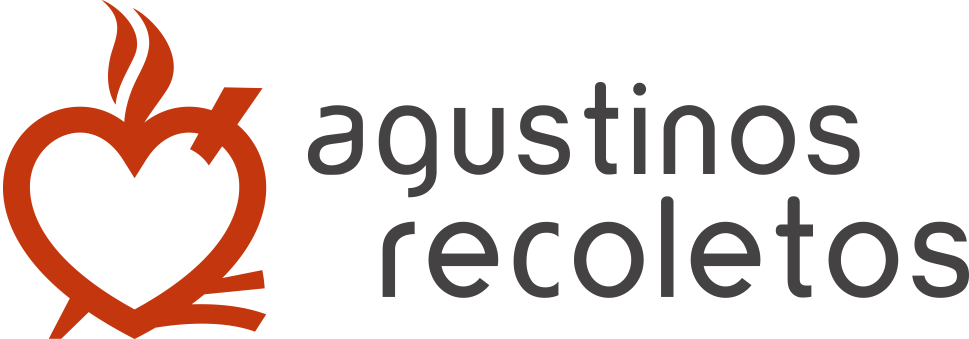MODULE FOR ETEEAP STUDENTS:
S.O.A.R. (Self, Opportunity, Aspirations, Results) to Success
I. INTRODUCTION
It has been the thrust of the Student Development and Placement Center to produce more ‘rounded graduates’ equipped to work in rapidly changing, high-technology work-places, in a global knowledge economy. The demand of the global requirement challenges the SDPC to design a career development program for an increasingly diverse student population in higher education. Career development program that will be feasible and effective particularly with students enrolled in Expanded Tertiary Education and Equivalency and Accreditation Program (ETEEAP).
Career counseling is a process of helping the client to get into a career that suited to their aptitude, personality, interests and skills. In the case of ETEEAP student, professional career counseling is likewise considered for the reason that nature and conditions of the client varies from their career needs, nature of work, and professional goals and plans.
This program will benefits the client to gain from career counseling which includes an increase satisfaction and productivity, finding meaning and purpose from their present work, and establish balance between work role and other life roles.
II. APPROACHES IN CAREER COUNELING
To fully realize the career development program for ETEEAP students, the career counselor will employ the following career counseling frameworks:
Social Cognitive Career Counseling
Major assumptions:
- Some people eliminate possible occupations due to faulty self- efficacy beliefs or outcome expectations.
- The greater the perceived barriers to an occupation, the less likely individuals are to pursue those careers.
- Modifying faulty self- efficacy and outcome expectations can help individuals acquire new successful experiences and open their eyes to new career occupations.
Counseling Strategies:
1. Identify foreclosed occupational options
- Career counselor will help the client to construct the broadest possible array of occupational possibilities, even those they may have eliminated as possibilities, or those that are lower interest.
- Career counselor will administer assessments
2. Analyze Barrier Perception
- Examine barriers, the likelihood the barriers will be encountered, and develop a plan to overcome the barriers
- Modify self- efficacy beliefs
- Career counselor will help the client develop new performance experiences to enhance self- efficacy related to occupations
- Career counselor will reanalyze past experiences of the client and examine the development of faulty self efficacy and/ or outcome expectations.
3. Adult Career Counseling
- Objectives:
- 1. To help diverse client to establish career plans and accept personal responsibility for career planning.
- Counseling Strategies:
- 1. Conduct Intake interview with the client.
- To obtain information and of establishing a foundation for the counseling relationship. (See appendix for Intake Counseling Form)
4. Administer Assessments:
- To provide an accurate and thorough information base with which to develop realistic career goals.
- To analyze client’s strengths, weaknesses, skills, abilities, attitudes, interests, values, and personality.
- 3. Exploration and Information gathering:
- To identify and clarify work values, investigate occupational interests, acquire information about work skills, and facilitate exploration of specific occupations.
- 4. Decision Making:
- To apply the information gathered in a structured way that can help clients avoid such common problems as too much or not enough information, too few alternatives, and poor evaluation of risks and potential outcomes.
- 5. Planning:
- To ensure that career plans are concrete, specific, and realistic.
5. Transition
- To apply the outcome of the decision-making and planning phase.
MODULE 1: SELF (S.O.A.R)
Self- Awareness: “Know yourself, know and create your future”
Overview:
Self is the acronym in the SOAR career counseling development program. In this case, professional client accept this as an awareness of the distinctive characteristics that define the kind of person one is and the kind of person one wishes to become. It also suggests the uniqueness of each person, and that current self- awareness has potential for future aspirations and identity formation.
Part I: Intake Interview and Needs Assessment
- Learner Program Outcomes
- He/ she will be able to obtain understanding of self by looking at their strengths and weaknesses, values, interests, and personality.
- He/ she will have the ability to look at oneself objectively as a unique being.
- Estimated Total Career Counseling Time
- 20 to 30 minutes
- Possible Learning Activities
- Intake interview
- Administer needs assessment
- Career processing
- Needed Materials (See appendices)
- Intake interview form
- 2. Needs assessment: It’s My Journey through Life: Am I in the Driving Seat?
- Human Resources
- Career Counselor
- ETTEAP Student
Part II: Building Self MAP (Motivation, Ability, Personality)
- Learner Program Outcomes
- The client will enable to specify a composite personal career profile which reflects systematic self- analysis based on the outcomes of a range of activities, and questionnaires.
- The client can make career-related choices based their profile
- The client will be able to build on strengths and address their development need.
- The client will be able to articulate four different aspects of career profile:
- Motivation: the interests and values important to the client
- Ability: skills and abilities, strengths and development needs
- Personality: the client’s preferences and styles in how they interact with the environment and with others.
- Estimated Total Career Counseling Time
- 20 – 30 minutes per career session
- Possible Learning Activities with career processing (See appendices)
C.1. Motivation
- Enhance self- awareness skills
- Career Lifeline
- Motivation to learn and develop
- Motivation drive for results
- Identifying Values (Career drivers card)
C.2. Ability
1. Learning Style (VARK Exercise)
2. Combining insight from Multiple Intelligence and VARK (Visual-Auditory
-Reading & Writing-Kinesthetic)
C.3. Personality
1. Using MBTI type in self- development
2. Developing skills in group work and team effectiveness
MODULE 2: Opportunity (S.O.A.R.)
“Researching and engaging with Opportunities”
Overview:
Connecting self with opportunity brings sharper focus on external world where client can explore and exploit career options. Clients who already have clear aspirations for the future can clarify and review their aims, and test their readiness for implementation. They can use suitable opportunities to develop the attributes required for successful entry to their chosen destination. Others who are still exploring options can ‘test the water’ with different types of work-sampling, and develop the skills needed by most graduate employers. All clients should gain information skills through researching options broadly and a chosen occupation more specifically.
A. Learner Program Outcomes:
This module will enable the client/s to:
- spot and engage with wider opportunities to develop needed skills and experience;
- develop information literacy skills that transfer to future potential jobs; and
- narrow their options down to the choice of an occupation/employer to enter.
B. Estimated Total Counseling Time
1. 30 min – 40minutes per career session
C. Possible Learning Activities with career processing (see attached appendices)
Part I: Researching and Engaging
1. Researching options and Evaluating information
2. Understanding jobs and transferrable skills
3. Researching jobs: what questions will you ask?
Part II: The nature and future of the changing world
- Designing a Career portfolio in the pace of change and technology
MODULE 3: Aspirations (S.O.A.R.)
“Decision-making Skills”
Overview:
The process of forming and implementing personal and collective aspirations, deciding and planning ahead, essentially determine the quality of experience in every area of life. The habit of making connections between ‘self’ and ‘opportunity’ often naturally extends to forming, clarifying and testing aspirations so that client can make decisions and plans along their life career pathways.
A. Learner Program Outcomes
This module will enable the client to:
- Understand the steps, stages and factors involved in making decisions;
- See the connections between decision making, information gathering, problem solving, goal setting and action planning;
- Evaluate the effects and effectiveness of our own and other people’s decision-making styles.
B. Estimated Total Counseling Time
- The estimated time devoted to counseling session of the client is 25 min. – 40 min. per session.
C. Possible Learning Career Activities with processing
- Personality type, decision-making/ problem solving and planning styles.
- Self- audit: planning and managing study and work.
Module 4: Results (S.O.A.R)
“Demonstrating Results”
Overview:
As they reach the Results stage of SOAR this may be paralleled by students moving into their final module that is to demonstrate the results of their broader skills-development directly to their present and/or future employer. In moving from student to graduate identity and employment, students should do further relevant ‘labor market research’, continue to test and match their strengths and aspirations to suitable ‘markets’ and apply what they already know and discover.
I. Learner Program Outcome:
This module will enable client to:
- Demonstrate personal efficiency in high-level skills;
- Promote their strengths on paper in order to realize their aspirations ; and
- Sharpen their social and professional conduct for effective self-presentation.
II. Estimated Total Counseling Time
- The estimated counseling time is between 20 min.- 30 min.
III. Possible Learning Career Activities with processing
- Career seekers: preparing to find a perfect fit
- Mirroring
- Reinforce CV (Curriculum Vitae)
- The ability to cope flexibility with change
- Personality type and career-search strengths




